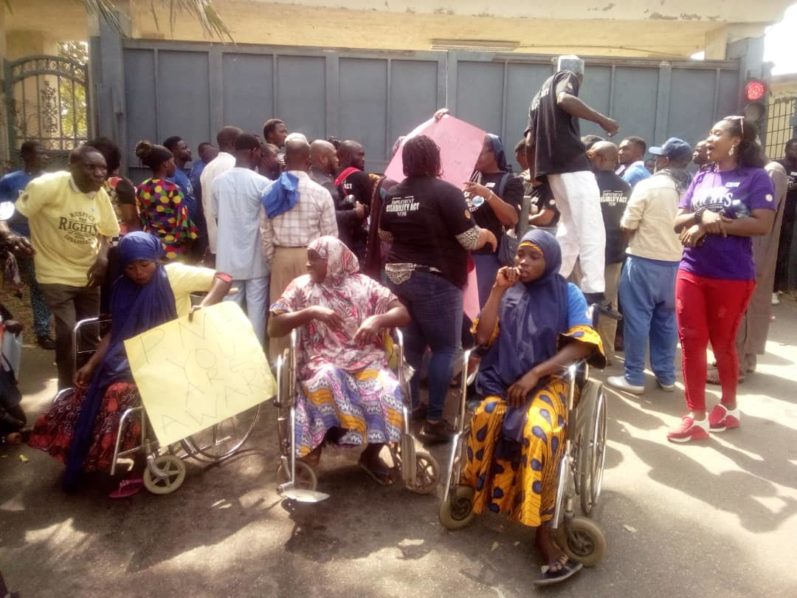
Global Rights Nigeria has attributed the unending security crisis in the Northwest to the non-inclusion of critical stakeholders, including women and People Living with Disabilities (PWDs), in peacebuilding initiatives in the region.
The Executive Director of Global Rights Nigeria, Abiodun Baiyewu, at the Northwest Regional Conference on Women, Peace, and Security held yesterday in Abuja, said the organization has recognized that women’s voices are the missing link to restoring peace and security in the Northwest region.
She said, “We recognized the imbalance in the restoration of peace in the region, especially the fact that the voices of critical actors were missing from participatory governance and peacebuilding initiatives.
“We recognized that women were the missing link in building sustainable peace in the region, given the critical role they play in their communities.”
Baiyewu pointed out that women’s absence from the decision-making table was costing the region peace.
She stated that in the last two years, Global Rights has been implementing a pilot project in Northwest Nigeria and deploying strategies for increased active engagement of women in participatory governance and community peacebuilding initiatives to promote security and good governance in the region.
She said, “We recognized that the lack of platforms for inclusive communication, the disenfranchisement of critical stakeholders—particularly women and minority identity groups—and the failure to implement an accessible early warning and early response system for vulnerable communities were major parts of the problem. Our project sought to address these issues.”
The Executive Director said the organization has been implementing women-centered projects in some Kaduna communities, with plans to implement the second phase of the project in Kano and Katsina states.
She maintained that peacebuilding is a long, challenging road that requires the collective effort of not just security personnel, community leaders, and men, but also women, young people, and the elderly—both indigenes and settlers.
The keynote speaker, Professor of Political Science, Prof. Chris Kwaja, emphasized that the Nigerian Police and the Judiciary must function proactively and responsively and must be well-resourced to provide the necessary policing structure for the country.
He added that justice is essential for society, stating that where there is a deficit in policing or a compromised judiciary, problems will arise.
The professor maintained that Nigeria’s security crises were due to the government’s weakness in providing the required policing for the people or a politicized system where individuals who should be prosecuted are not.
“There is an urgent need for policing and judicial reforms. We need a well-equipped, structured police force that can deliver on the needs of society. Additionally, we need men of integrity and courage in our judicial system,” he said.



